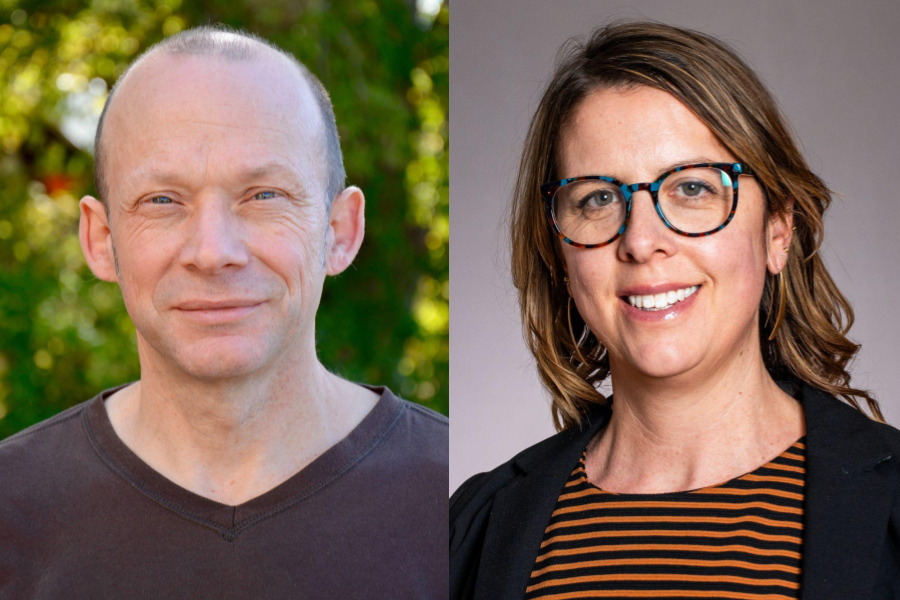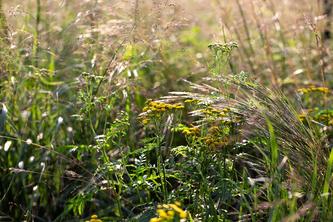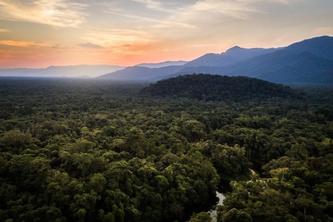
The 2024 Minnesota Governor's Fishing Opener is approaching fast. While anglers are excited to kick off the summer fishing season, the unseasonably warm winter may have had an impact on fish in waterways across the state.
Gretchen Hansen, professor in the College of Food, Agricultural and Natural Resource Sciences, and William Herb, research associate in the St. Anthony Falls Laboratory in the College of Science and Engineering, provide expert commentary about how fish populations might be different this year.
Gretchen Hansen, Ph.D.
“Novel events like this winter are outside the bounds of what we have seen in terms of ice cover to date, so it is very hard to know how ecosystems will respond.
Reproduction is most likely to be impacted for some fish species. Coolwater walleye and yellow perch need cold temperatures to develop their eggs and are cued by temperature to spawn in the spring. Given the short and warm winter, they might not have had sufficient time at cold temperatures for eggs to develop. If lake ice goes off early, as we’ve started to see around the state, they might also be impacted by "mismatches" between larval fish and the food they need at critical times — that is, the food might not be ready when they are.”
William Herb, Ph.D.
“The impacts of a very mild winter on fish are complicated. Deeper lakes usually mix top-to-bottom after ice-out in spring, and before ice forms in the fall. During the summer, deep lakes develop layers of warm water on the surface and colder water at the bottom. The spring and fall mixing of those layers supplies oxygen to the deep water, while the summer separation stops the transfer of oxygen downwards. When we have an early spring and a longer period of water separation over the year, the colder deep water in the lake may run out of oxygen — that's a problem for lake trout and other fish adapted to the cold water.”
Gretchen Hansen is an assistant professor in the Department of Fisheries, Wildlife and Conservation Biology. Her research areas include climate change, long-term trends in fish populations, aquatic invasive species, food webs/community dynamics, landscape models of fish habitat and adaptive management.
William Herb is a research associate at the St. Anthony Falls Laboratory in the College of Science and Engineering. His research interests include lake and river water quality modeling, hydrology, climate change and environmental hydraulics.
About the College of Food, Agricultural and Natural Resource Sciences
The University of Minnesota’s College of Food, Agricultural and Natural Resource Sciences (CFANS) strives to inspire minds, nourish people, and sustainably enhance the natural environment. CFANS has a legacy of innovation, bringing discoveries to life through science and educating the next generation of leaders. Every day, students, faculty, and researchers use science to address the grand challenges of the world today and in the future. CFANS offers an unparalleled expanse of experiential learning opportunities for students and the community, with 12 academic departments, 10 research and outreach centers across the state, the Minnesota Landscape Arboretum, the Bell Museum of Natural History, and dozens of interdisciplinary centers. Learn more at cfans.umn.edu.
About the College of Science and Engineering
The University of Minnesota College of Science and Engineering brings together the University’s programs in engineering, physical sciences, mathematics and computer science into one college. The college is ranked among the top academic programs in the country and includes 12 academic departments offering a wide range of degree programs at the baccalaureate, master's, and doctoral levels. Learn more at cse.umn.edu.
About “Expert Alert”
University of Minnesota experts can provide commentary, insights and opinions on various news topics. Find selected experts on the University’s Experts Guide or send requests to [email protected].





